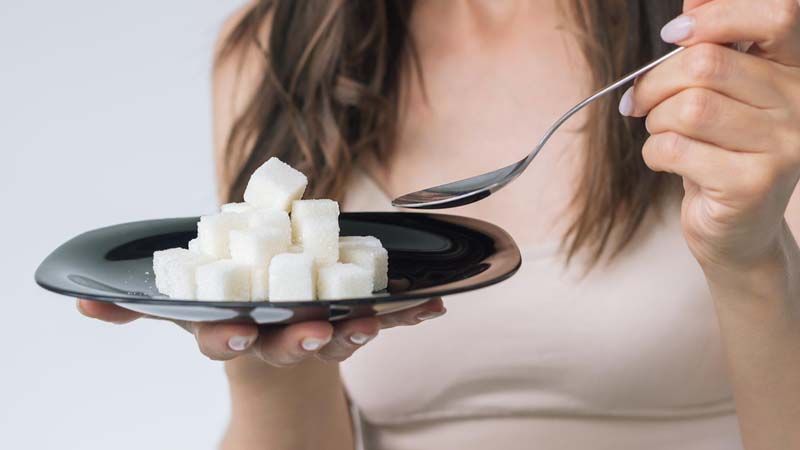Top Benefits & Side Effects Of Drinking Beetroot Juice
- 17 hours ago
Beetroot is often referred to as a superfood, thanks to its incredible nutritional profile and numerous health benefits. This vibrant root vegetable has gained popularity among health enthusiasts, particularly in the form of beetroot juice. Whether you’re looking to boost stamina, improve heart health, or enhance skin glow, drinking beetroot juice can be a great addition to your diet. However, like any other natural remedy, it comes with certain side effects that you should be aware of. In this blog, we will explore the top 16 benefits and side effects of consuming beetroot juice.

Top 10 Benefits of Drinking Beetroot Juice
1. Enhances Blood Circulation & Lowers Blood Pressure
Beetroot juice is packed with nitrates, which help in dilating blood vessels, leading to improved blood circulation and lower blood pressure. Studies have shown that regular consumption of beetroot juice can help reduce systolic and diastolic blood pressure, thereby reducing the risk of heart diseases and strokes.
2. Increases Stamina & Energy Levels
If you’re someone who frequently experiences fatigue or exhaustion, beetroot juice could be the natural energy booster you need. The high nitrate content enhances oxygen supply to the muscles, improving endurance and stamina. This makes it an excellent pre-workout drink for athletes and fitness enthusiasts.
Also Read: 6 Foods for Better Stamina and More Energy
3. Promotes Heart Health
By reducing high blood pressure and controlling bad cholesterol (LDL), beetroot juice significantly improves heart health. The presence of antioxidants and anti-inflammatory properties further helps in maintaining overall cardiovascular function.
4. Improves Skin Health & Radiance
Beetroot juice is a natural detoxifier that purifies the blood, resulting in clearer, healthier skin. The presence of vitamin C and iron helps reduce pigmentation, dark spots, and acne while providing a natural glow to your skin.
5. Aids in Digestion & Relieves Constipation
Beetroot juice is an excellent source of dietary fiber, which promotes smooth digestion and prevents constipation. The betaine in beetroot also helps in improving gut health and digestion, reducing bloating and indigestion.
6. Boosts Brain Function & Prevents Cognitive Decline
The nitrates in beetroot juice enhance blood flow to the brain, improving cognitive function and reducing the risk of age-related neurological disorders like dementia and Alzheimer’s disease. Regular consumption can enhance memory, focus, and concentration.
7. Boosts Hemoglobin Levels & Prevents Anemia
Beetroot juice is rich in iron, making it beneficial for increasing red blood cell production and boosting hemoglobin levels. This makes it especially helpful for individuals with anemia. When combined with iron-enhancing foods like carrots or tomatoes, the body’s ability to absorb iron improves even further.
8. Strengthens Immunity
Rich in vitamin C, iron, and other essential nutrients, beetroot juice strengthens the immune system. It helps the body fight infections, enhances wound healing, and reduces inflammation.
9. Regulates Blood Sugar Levels
Despite its naturally sweet taste, beetroot juice has a low glycemic index, which means it does not cause rapid spikes in blood sugar levels. It is beneficial for diabetics when consumed in moderation.
10. Acts as a Natural Detoxifier
Beetroot juice is known for its detoxifying properties. It helps in flushing out toxins from the liver and kidneys, promoting overall health and preventing the accumulation of harmful substances in the body.
Try These Beetroot Recipes
Top 6 Side Effects of Drinking Beetroot Juice
1. May Cause Kidney Stones
Beetroot contains high levels of oxalates, which can contribute to kidney stone formation, especially in individuals who are prone to developing stones. If you have a history of kidney stones, it is best to consult a doctor before consuming beetroot juice regularly.
2. Can Lower Blood Pressure Too Much
While beetroot juice is beneficial for people with high blood pressure, those with naturally low blood pressure should be cautious. Drinking excessive amounts can cause dizziness, weakness, and fainting due to a drastic drop in blood pressure levels.
3. May Turn Urine & Stool Reddish (Beeturia)
A harmless yet alarming side effect of consuming beetroot juice is beeturia, a condition where urine and stool turn pink or reddish. This is due to the presence of betalain pigments in beetroot and is not a cause for concern.
Also Read: What Is Your Urine Telling You About Your Health?
4. May Trigger Allergic Reactions
Some people may develop allergic reactions after drinking beetroot juice, experiencing symptoms such as rashes, itching, swelling, or difficulty in breathing. If you notice any allergic reaction, discontinue use and seek medical advice.
5. Can Cause Stomach Discomfort & Bloating
Due to its high fiber content, consuming beetroot juice in excessive amounts can lead to stomach discomfort, bloating, and gas.
6. Might Affect Blood Sugar Levels in Diabetics
Although beetroot juice has a low glycemic index, overconsumption can still lead to fluctuations in blood sugar levels. Diabetics should monitor their intake and consult a doctor for safe consumption.
How Much Beetroot Juice Should You Drink?
While beetroot juice offers numerous health benefits, moderation is key. The ideal intake is one cup (200–250 ml) per day to enjoy its advantages without experiencing any adverse effects.
Final Thoughts
Beetroot juice is a nutritional powerhouse that supports heart health, enhances stamina, improves skin radiance, and strengthens immunity. However, it is essential to be mindful of its potential side effects, especially if you have kidney issues, low blood pressure, or a sensitive digestive system. To enjoy its benefits without any risks, consume beetroot juice in moderate quantities and consult a healthcare professional if you have any underlying health concerns.









